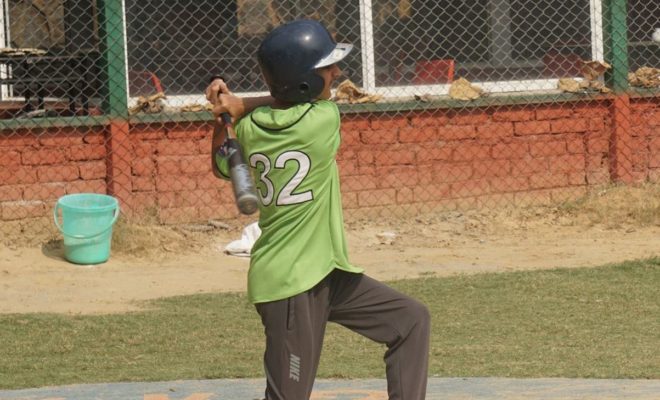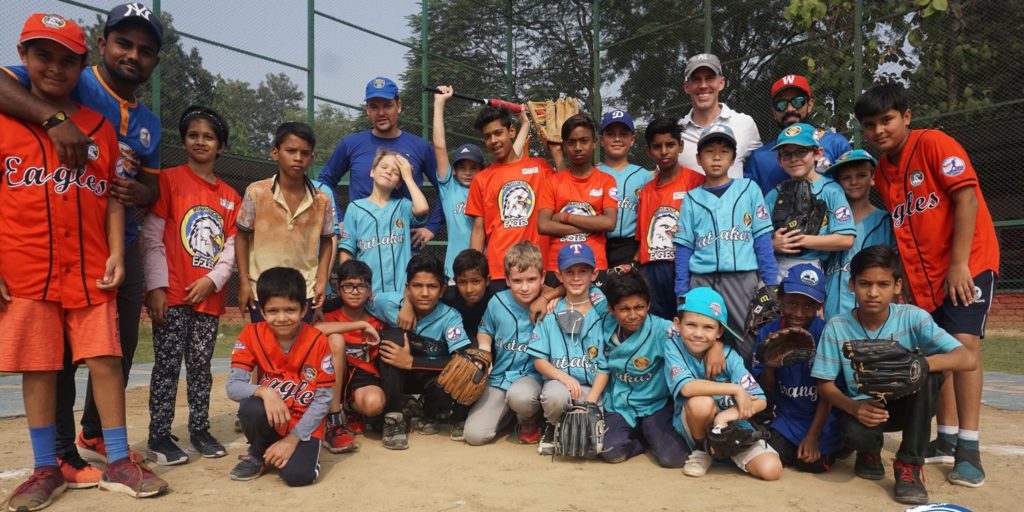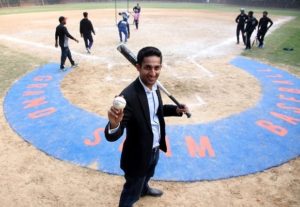Life
Batter Up! Bringing Baseball to a Billion

Grand Slam Baseball
The recently-concluded nationwide talent hunt for best U-16 and U-17 baseball players may just well be the baby steps the sport is taking in India.
Baseball was a game, until a few years ago, that you could perhaps play or even watch live in India only after clearing stringent security checks at the American embassy premises in New Delhi. Well, no more. The sport just saw a nationwide talent hunt for India’s best U-16 and U-17 players, with Pennsylvania-based Pittsburgh Pirates acting as scouts.
About 100 selected players are getting to live their “Million Dollar Arm” moment after the hunt concluded last weekend on the aptly-named “Field of Dreams” — India’s first regulation size baseball ground, that came up earlier this year on the farms at Pushpanjali near Indira Gandhi International Airport.
The Field of Dreams was opened in February this year by Grand Slam Baseball, a Delhi-based organization promoting the sport in India. “The name of the stadium is borrowed from an American movie in which a man has a dream to open a baseball field in his backyard,” Raunaq Sahni, the director of the organization, tells Little India.
The Beginning
Founded in 2013, Grand Slam Baseball is the brainchild of Sahni and his American childhood friend Jackson Golden. The two, who were neighbors in Delhi, played baseball every day when they were growing up. At that time, the only baseball facility in the city was located inside the U.S. embassy, and access was limited to New Delhi Little League players.
“He (Jackson) invited me to play in a youth league at the US Embassy,” Sahni recalls. “The sport was mostly played among expats and among government school players that the league sponsored. I was one of the first private school kids to play the sport in Delhi.”
Sahni went on to train under former Colorado Rockies hitting coach, Blake Doyle, at the Detroit Tigers spring training facility in Florida. However, as he finished his undergraduate studies, his playing time dwindled and baseball went to the annals of a childhood well spent. “One day my old neighbor called me up while he was studying at Northeastern and asked me whether I’d like to start a baseball program in India. I thought it was a ridiculous idea. So did he.”

The Grand Slam Baseball players
They decided to give it a shot anyway. Their first contract was with Sahni’s school, the Modern School at Barakhambha Road. “I remember that for the first six months, I’d get up at 5 am to go coach these kids for free,” he reminisces. “We started adding these schools to the league at the US Embassy and that’s how we got our start.”
The Journey
The hard work seems to have paid off. Says Anupama Chauhan, the mother of Abhishek, who is one of Grand Slam Baseball’s U-12 players: “My son is living and breathing baseball. He is ready to sacrifice his TV time, his school picnic outings and all things that 9-year-olds do for the game. He even eats healthy without my prodding, for as sports player he needs his nutrition.”
Dedicated disciples like Chauhan weren’t easy to train though. At the time of the inception of Grand Slam Baseball, state bodies and the Amateur Baseball Federation of India were the ones saddled with the responsibility of creating baseball players. The federation, founded in 1983, was operational for 30 years. “The federation was only able to promote the sport at government schools, where kids can’t pay for equipment, proper training and facilities,” Sahni points out.

Raunaq Sahni
According to him, India already has close to 80,000 players — active and inactive. Grand Slam Baseball was tasked with using the existing network of players to popularize the sport. They started two bodies — Grand Slam Baseball and Pro Ball Club of India. While Grand Slam Baseball runs the programs at elite private schools and charges the students for training, the latter sponsors government school players in Delhi. For every private school player Grand Slam Baseball trains, Pro Ball Club of India sponsors two government school players, says Sahni.
Pro Ball Club of India currently sponsors 400 government school players. Also put in place was a brand for each team. The Modern School Baseball team was, for instance, called the Modern School “Warriors”.
“For us, the brand went beyond just a logo and a fancy jersey,” says Sahni. “It gave the team an identity and made the players accountable to the team. Then we created a code around the brand, which is important to create values.” The last step was to help break cultural and socio-economic barriers through the sport. The Warriors ended up playing with players from 15 other nationalities at the US embassy. They also played with sponsored players who belonged to government schools.
Parth Kohli, their U-16 player, just got selected by Major League Baseball for their development center in Germany.
The Future
With risings stars like this, Sahni is optimistic about the growth of the sport in India. “Indians are born with a bat and ball mentality so they are bound to become good at baseball,” he says. “I see the hunger for baseball developing at schools quite rapidly.”
It’s not him alone. Major League Baseball’s top executives have come to India twice this year, and World Baseball Softball Confederation (WBSC) President Riccardo Fraccari made his first visit to India as well, displaying confidence in the country as a good breeding ground for the sport.
Nurturing a strong base for the sport is not without its challenges though. “Schools, physical education departments and corporate companies are still hard to convince. Our oldest school, Modern School Barakhamba, just cancelled our contract after four years because the new head of sports at the school didn’t believe in the potential of the sport,” Sahni reveals, adding that it takes years to train coaches and players. “It’s not like a product that just takes days or even hours to make. You need to invest at least 3-4 years in a coach or a player before you start seeing returns.”
Even with the setback, their vision moves forward. After making a base in Delhi, Grand Slam Baseball hopes to branch out in other cities. They recently associated themselves with Pegasus Sports to grow the game in Mumbai.
“In order for baseball to thrive in India it needs to do more than be just a new, western sport,” says Sahni. “People are tired of being ordinary. They want to stand-out by trying something different and baseball provides them that outlet.”
